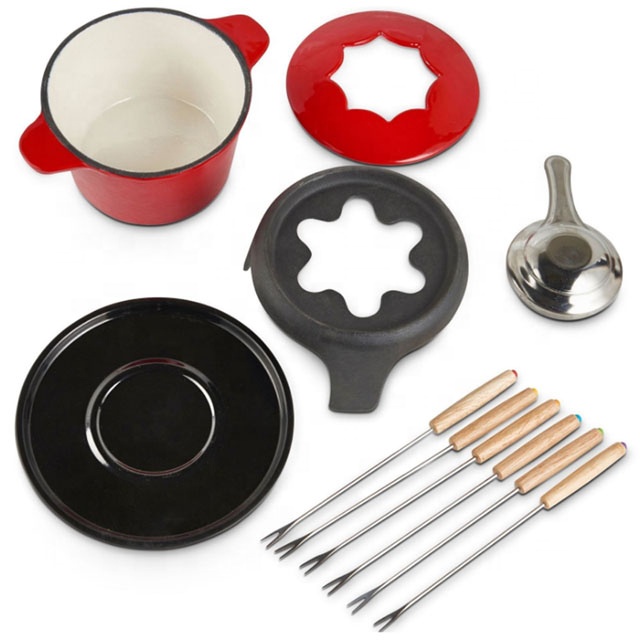
Caring for Your Cast Iron Skillet for Longevity and Performance
Treating Your Cast Iron Skillet A Guide to Long-Lasting Cookware
Cast iron skillets are not just kitchen tools; they are family heirlooms, culinary companions, and versatile cooking instruments that can last a lifetime if properly cared for. Unlike other types of cookware, cast iron skillets require a unique treatment and maintenance process to retain their non-stick properties and to avoid rusting. This guide will walk you through the essentials of treating your cast iron skillet, ensuring it serves you well for many years to come.
Understanding Cast Iron Skillets
Cast iron skillets are made from molten iron that has been poured into molds. This process creates a porous surface that can absorb fat and flavor from food. When seasoned correctly, a cast iron skillet develops a natural non-stick coating that improves with each use. However, this seasoning can wear away, and the skillet can develop rust if not cared for properly. Understanding how to treat and maintain your skillet is key to maximizing its lifespan.
The Importance of Seasoning
Seasoning is crucial for cast iron skillets. It is a process that involves applying a layer of fat or oil to the skillet and heating it to create a solid, non-stick layer. The primary purpose of seasoning is twofold it enhances the cooking surface and protects the skillet from moisture, preventing rust.
To season your skillet, start by cleaning it thoroughly. If your skillet has stubborn stuck-on food or rust, use a mixture of coarse salt and water to scrub it clean, then rinse it well and dry it immediately to avoid any moisture. Once it’s clean and dry, apply a thin layer of vegetable oil, canola oil, or flaxseed oil all over the cooking surface.
Next, place the skillet upside down in an oven preheated to 375°F (190°C). It’s essential to have a piece of aluminum foil or a baking sheet on the rack below to catch any drips. Bake the skillet for about an hour. Turn off the oven and let the skillet cool inside. This process allows the oil to polymerize, forming a durable coating that enhances the skillet's non-stick properties.
treating cast iron skillet

Regular Maintenance
After seasoning, it's important to maintain your cast iron skillet properly. One critical aspect of maintenance is cleaning. After each use, avoid soaking your skillet in water or putting it in the dishwasher. Instead, clean it with hot water and a scrub brush or sponge. For stubborn residue, use salt as an abrasive. Rinse, dry immediately, and apply a thin layer of oil while the skillet is still warm. This practice keeps the skillet seasoned and prevents rust.
If your skillet develops rust or the seasoning starts to flake, don’t panic. You can restore it. First, scrub the rust away with steel wool or a scouring pad until the iron is exposed. Then, wash, dry, and re-season it as mentioned previously. This process can breathe new life into an old skillet, making it as good as new.
Cooking Techniques and Tips
When cooking with a cast iron skillet, it’s essential to preheat it properly to avoid sticking. Add your cooking fat (such as oil or butter) to the skillet when it’s hot but not smoking. This technique ensures that food releases easily, and you achieve a perfect sear.
Avoid cooking acidic foods (like tomato sauce) in new or poorly seasoned skillet, as they can strip the seasoning layer. As your skillet becomes more seasoned over time, it will handle acidic ingredients better, but caution is still wise in the early stages.
Conclusion
By understanding how to treat and maintain your cast iron skillet, you are investing in a reliable kitchen companion for years to come. With proper seasoning, regular maintenance, and attentive cooking techniques, your skillet will not only enhance your culinary creations but also become a cherished part of your kitchen heritage. Treat it with care, and it will reward you with delicious meals and cherished memories. Whether you are searing a steak, baking cornbread, or frying crispy potatoes, a well-treated cast iron skillet is sure to make every cooking experience memorable.
-
Season Cast Iron Perfectly with GPT-4 Turbo TipsNewsAug.01,2025
-
High Quality Cast Iron Cookware - Baixiang County Zhongda MachineryNewsAug.01,2025
-
Premium Cast Iron Pan: Durable & Perfect HeatNewsAug.01,2025
-
High Quality Kitchen Durable Black Round Cast Iron Cookware Pancake Crepe Pan-Baixiang County Zhongda Machinery Manufacturing Co., Ltd.NewsAug.01,2025
-
Cast Iron Cookware - Baixiang County Zhongda Machinery | Nonstick, Heat ResistanceNewsAug.01,2025
-
High Quality Kitchen Durable Black Round Cast Iron Cookware - Baixiang County Zhongda Machinery | Non-Stick, Heat Retention, DurableNewsJul.31,2025


